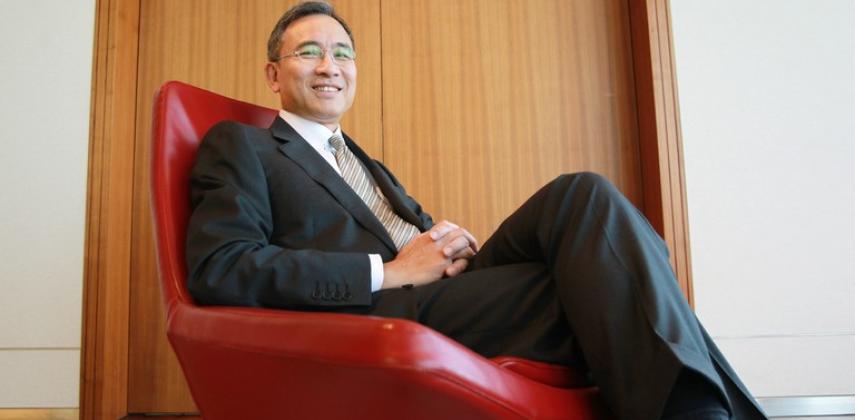Allen Lo joined UBS wealth management in 1997 and, 12 years later, was not only chief executive of the bank’s Hong Kong branch, but had also collected a series of other titles denoting diverse roles within the organisation and across the Asia-Pacific region.
Based in Hong Kong, Lo focuses mainly on strategic business development, talent management, media relations and risk management. Previously, he spent 10 years with Citibank, including a stint in Atlanta, and before that was with Coopers & Lybrand in Canada for nine years, specialising in litigation support, business valuation and liquidations.
Lo graduated in 1977 as a bachelor of commerce from Concordia University in Montreal and, in 2002, completed a global leadership programme at Harvard University. He talks to Jan Chan.
Which qualities have helped you become an effective leader?
The first thing is to make sure you keep learning in order to be a suitable example for colleagues. As part of that, you have to listen to others, be open-minded and fair, and must always be ready to consider new perspectives and ideas. However, being a leader also means you can’t make everybody happy all the time, especially if resources are limited. Therefore, I don’t aim to please everyone, but to act fairly and hope people will understand the reasons.
What is the key to getting people to accept your vision or ideas?
There has to be a clear purpose shared with every member of the team. Then it is a question of engaging “hearts and minds”, so that separate roles are understood and people can work well together. Of course, I expect different opinions and points of view and, during discussions, remind myself to listen more and speak less, focusing on what is needed to reach an agreement.
What does it take to get the best out of every individual?
We have a programme of “stretch” assignments for high-potential individuals, involving them in a range of challenging projects. For example, when I was country head in Hong Kong in 2000, one of my assignments was to handle the integration project for North Asia. It was quite complex, involving a rethink of operations plus credit, legal and compliance aspects. I did this in addition to my normal day-to-day duties, but found it very helpful in terms of career growth and showing other people my potential.
What do you find is the best way to motivate staff?
It is important for employees to see there are opportunities to grow in the company. To achieve that, you also have to empower them and make them accountable. Every work environment is getting more stressful these days, so we have also introduced work-life balance programmes to help staff perform to a consistently high level.
Is it difficult to build loyalty when many people only think about the short term?
Our approach is to give all employees a long-term objective. Although money is important, the more essential thing is to provide a platform for people to prove their ability. A company should also ensure there is a generally supportive environment, so staff can concentrate on their work without being sidetracked by office politics and other lesser distractions. In addition, there should be plenty of training opportunities so people see they are making progress and realise they will keep learning.
How can banks and other financial institutions regain public confidence?
I believe that a transparent policy and system will help. It is our responsibility to help members of the general public understand exactly what banks are doing by providing sufficient information. Besides that, we must keep improving our self-governance and capital management, upgrading the skills and standards of our staff. Overall, we need to achieve a standard that goes well beyond simply complying with regulations and policies.
Which experiences most shaped your attitude to work and life?
I have found what you achieve all depends on what you really want to do in life. Of course, you have to plan ahead and make the necessary effort, but if you set a clear goal and then apply yourself, it is not that difficult to get there.
What do you hope to achieve in the next three years?
Regarding the company, Asia will continue to be a major market in the coming years. In my role, there will therefore be no shortage of challenges, and we can certainly expect higher targets every year. On a personal level, one particular hope is that my son, who has just graduated from university, will have a career as satisfying as mine and that my daughter, who is now in her third year at university, will have a great future. I am very proud of both of them.
What are the comparative strengths and weaknesses of today’s young recruits?
The young people working in UBS are more knowledgeable than I was when I was a fresh graduate. I can see they are very creative and have very ambitious goals. However, sometimes they are too impatient and keep multi-tasking, rather than investing time on one thing. My advice would be to slow down a little bit and listen more to other ideas and viewpoints.
Exchanging ideas
- Lo likes to talk openly over coffee with colleagues from different levels three or four times a month
- He suggests that if someone is no longer making progress in his or her career, it is time for that person to go
- He believes employers should encourage diversity to retain talent


